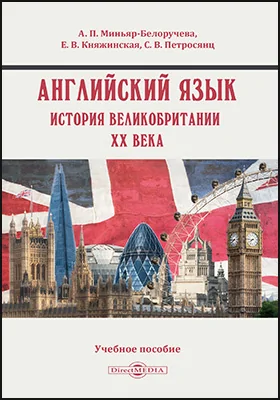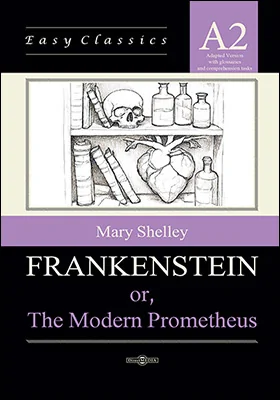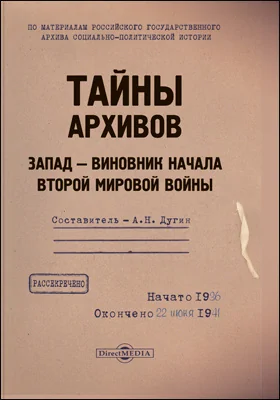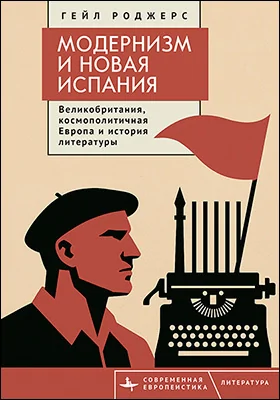
Английский язык. История Великобритании XX века
Здесь можно купить книгу "Английский язык. История Великобритании XX века" в печатном или электронном виде. Также, Вы можете прочесть аннотацию, цитаты и содержание, ознакомиться и оставить отзывы (комментарии) об этой книге.
Автор: Алла Миньяр-Белоручева, Елена Княжинская, Светлана Петросянц
Форматы: PDF
Издательство: Директ-Медиа
Год: 2022
Место издания: Москва
ISBN: 978-5-4499-2973-0
Страниц: 176
Артикул: 93500
Возрастная маркировка: 16+
Краткая аннотация книги "Английский язык. История Великобритании XX века"
Данное учебное пособие по английскому языку направлено на усвоение профессионально ориентированного языка историка. На материале оригинальных работ англоязычных историков студенты (бакалавры) отрабатывают лексико-грамматический материал и развивают языковую, речевую и профессиональную компетенцию.Учебное пособие предназначено для студентов бакалавриата, обучающихся по направлениям подготовки «История», «Политология», «Международные отношения», «Глобалистика», а также для всех желающих изучать английский язык самостоятельно.
Содержание книги "Английский язык. История Великобритании XX века "
Введение
Unit 1. EMPIRE FOR SALE
Unit 2. APPEASEMENT OF GERMANY
Unit 3. CHURHILL AS WARLORD
Unit 4. FROM MASTERS TO SLAVES
Unit 5. NATIONALISATION
Unit 6. MARGARET THATCHER
Unit 7. TONY BLAIR
Unit 8. THE FALL OF THE BRITISH EMPIRE
Literature
Все отзывы о книге Английский язык. История Великобритании XX века
Отрывок из книги Английский язык. История Великобритании XX века
106 Unit 5. NATIONALISATION (by J. Tomlinson) Nationalisation was at the heart of Labour’s economic poli-cies in 1945. It was central to Labour’s programmatic statements of the 1930s, and the commitment was strengthened by the war. Nationalisation was 'out of bounds' under the wartime coalition; whilst Labour’s commitment to controls over the economy matched both the demands and political possibilities of war, the Conservatives would not stomach public ownership. Hence the war contrived to 'make public ownership a cherished icon. La-bour’s distinctive vision of economic change centred more and more on what was being denied it during the war.' Nationalisa-tion — before, during or after the war — never had a simple justification. In the 1930s the emphasis tended to be on the mo-nopolistic and inefficient character of the specific industries con-cerned; in the war period the view that the role of nationalisation was part of a more general picture of a hierarchy of economic controls, aimed especially at securing full employment, gained ground. After 1945 both these objectives were central to the ar-gument, though they were coupled to broader aims of depriving private capital of power and enhancing democracy. Nationalising was a means of increasing efficiency, a means of planning the economy, but for some an end in itself, as representing the appro-priate form of ownership for a socialist economy. In the context of the late 1940s’ desire for output and effi-ciency and the lack of any immediate threat of mass unemploy-ment, the debate on nationalisation tended to shift towards 'efficiency' issues. The other aspects of nationalisation did not go away, and indeed the important debate about future nationalisation which began in Labour circles as early as 1947 was not just about how much to nationalise, but also about its purposes. Neverthe-less, it was the efficiency ...
Миньяр-Белоручева А. П. другие книги автора
С книгой "Английский язык. История Великобритании XX века" читают
Внимание!
При обнаружении неточностей или ошибок в описании книги "Английский язык. История Великобритании XX века (автор Алла Миньяр-Белоручева, Елена Княжинская, Светлана Петросянц)", просим Вас отправить сообщение на почту help@directmedia.ru. Благодарим!
и мы свяжемся с вами в течение 15 минут
за оставленную заявку















































